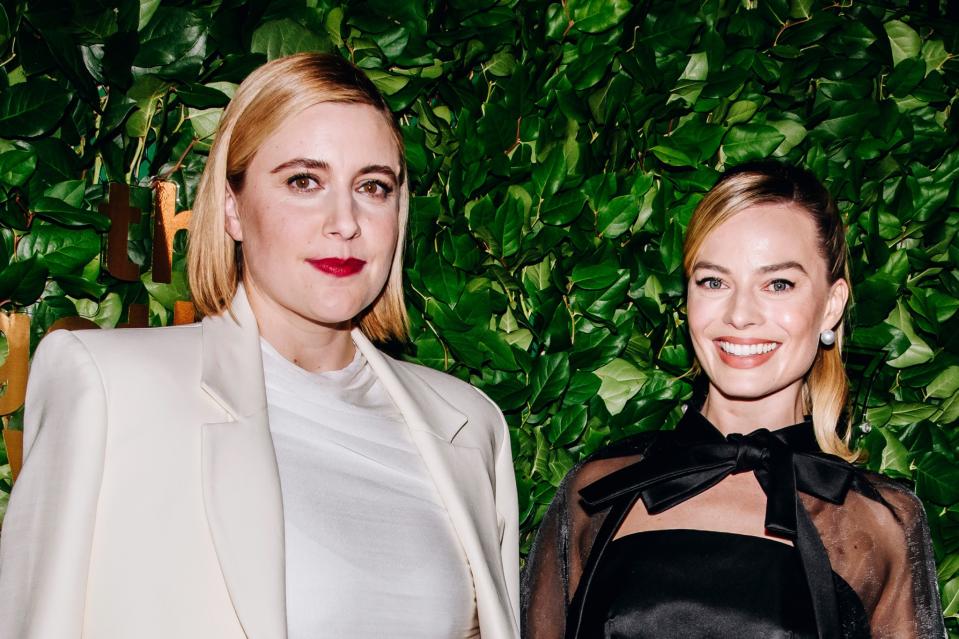Oscar ‘snubs’? Barbie’s Greta Gerwig and Margot Robbie have already won

Unlike Hillary Clinton, I can't muster much outrage about Barbie being nominated for some Oscars but not others. And I suspect Greta Gerwig and Margot Robbie are pretty happy with the choices that have already made their film a runaway success—with or without a handful of "snubs."
Sure, there’s a wry meta-commentary to find in the Academy Awards recognizing Ryan Gosling for playing Ken, but not Robbie for playing the title character—in a movie literally about patriarchy and feminism. And I understand why Clinton, and the many others who took their outrage to social media this week, are upset about the symbolism of the snubs. Gerwig was passed over for a directing nomination, in a category stacked as usual with male “genius-auteurs,” such as Martin Scorsese and Christopher Nolan. Even after this year’s nomination of Justine Triet, director of Anatomy of a Fall, only eight women—in nearly a century of Oscars—have ever been nominated for the best director award.
But this language of “snubs” takes away some of Gerwig’s agency. And it ignores what I’d argue matters most: The incredibly savvy and successful business choices that both Gerwig and Robbie made with Barbie.
It’s tediously practical, I know, but as a longtime business reporter, I find that almost everything comes back to money and power. And in this respect, Barbie’s women have already won.
Gerwig pulled off a tremendous balancing act of art and commerce, directing a summer blockbuster—about a toy doll, and also about the boring basics of feminism!—that minted money, won critical acclaim, and started the kind of cultural conversations that Marvel and other franchise seat-fillers rarely see these days. She directed the highest-grossing film of 2023, and became the first solo female director of a film that earned at least $1 billion at the box office. She hit a home run in the ways that matter most in our capitalist society, and she did so without artistically selling out.
Of course, awards matter too. High-prestige critical recognition can bring crucial attention to the work of underrepresented people, especially in a system as broken as Hollywood’s. Women are still largely shut out of the most powerful filmmaking jobs: Even accounting for Gerwig’s record-breaking success with Barbie, women directed only 16 percent of the top-grossing films in 2023 and held only 22 percent of major behind-the-scenes roles on those films. And as I’ve reported for Fortune, few of the massive societal and workplace reckonings of the past several years have meaningfully improved Hollywood’s culture around inclusion or diversity—or even just basic working conditions: “Nothing is fixed,” the longtime entertainment-industry reporter Maureen Ryan, author of Burn It Down: Power, Complicity, and a Call for Change in Hollywood, told me this summer during the strikes of actors and writers.
So it’s good to see the Oscars recognizing America Ferrera, one of the few Latinas ever nominated as best supporting actress, for her on-screen transformation from tired mom to inspirational (and viral) orator. It’s also worth noting that the Academy Awards did not completely “snub” Gerwig and Robbie. Both were nominated, respectively, for writing and producing the movie that earned more $1.4 billion, dominated the “year of the girl,” and launched a thousand think pieces (including my own!) about feminism and the power of the female consumer.
And as director, Gerwig was the ultimate authority on the filmmaking choices that highlighted Gosling’s performance, which earned him that much-bemoaned (if well-deserved) best supporting actor nomination. Gosling said as much himself after the nominations were announced: “There is no Ken without Barbie, and there is no Barbie movie without Greta Gerwig and Margot Robbie, the two people most responsible for this history-making, globally celebrated film."
Ultimately, all of Barbie's achievements—at the box office and in the public conversation—likely matter more to Gerwig and Robbie than missing out on a few award nominations. Film directors—especially women—whose projects flop often find themselves in “movie jail,” unable to get another job in Hollywood for years or decades. Gerwig probably doesn't have to worry about that ever again. And she has already established her artistic bona fides, with the critically acclaimed and awarded Lady Bird and Little Women. Whether she wants to go back to small-scale indies or direct the next installment of the Star Wars franchise, she should have few problems getting her next film made.
The payoff should be similar for Robbie, who already has two Academy Award nominations for her acting—and who earned a reported $50 million in salary and box office bonuses for Barbie. As a producer, she has also developed a savvy track record of backing films that are both smart and successful. Before Barbie, Robbie’s company produced movies ranging from I, Tonya to Promising Young Woman. As she told Variety recently, the former’s commercial success helped her take more interesting artistic leaps.
“It’s hard to be idealistic about the kind of films you want to make when you’re just lucky to get anything at all,” she told Variety. “The ethos of the company was always there, and our mantra was always there, but we could be afforded to be strict with ourselves and stick to that mantra once we had a little success.”
Now she and Gerwig have had far more than a little success. Their decisions—artistic and business—around Barbie allowed them to thread that needle.
So I suspect that if both women were given a choice between receiving more Oscar nominations or retaining all of Barbie’s commercial success and pop-culture dominance, they’d be very happy with how this week played out. They’ve already won. They don’t need a few more awards, or anyone else, to tell them that.
This story was originally featured on Fortune.com
